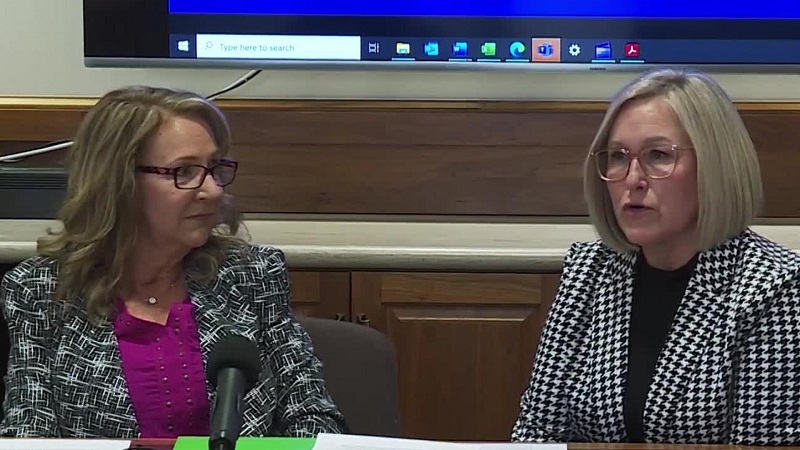PORTLAND, Ore. (KOIN) — Two women who survived attacks by Richard Gillmore — also known as the Jogger Rapist — are channeling their frustration over his release from prison in an effort to change the law about how sex offenders are assessed.
But it does not appear the bill or other companion bills will move forward this session.
The Jogger Rapist was released from an Oregon prison in mid-December 2022 after serving 36 years in prison. Richard Gillmore admitted to 9 rapes and was convicted of one because the statute of limitations ran out by the time he was arrested in 1986.
Gillmore is classified as a low-level sex offender, based on a 10-question assessment given by the state parole board. Gillmore is not listed on on public sex offender registry.
Now, Oregon State Sen. Tim Knopp is co-sponsoring a bill to change Oregon’s sex offender risk level and methodology, a direct result of Gillmore’s release.
KOIN Complete Coverage: The release of the Jogger Rapist
On Tuesday, Knopp and two of Gillmore’s victims, Danielle Tudor and Tiffany Edens, held a press conference to talk about why they believe this change is needed.
Tudor and Edens support the Senate bill to require the parole board to take into account an offender’s history and all relevant information before classifying them.

SB 1022 would change the sex offender leveling process in 3 ways, Knopp’s office said in a release:
- Requires the totality of an offender’s history and all relevant information available to the parole board be considered during the leveling process.
- Requires the parole board’s adopted definition of “victim” be consistent through the leveling process.
- Victims of an offender may challenge the parole board’s leveling designation for up to 3 years. Notably, this portion of the bill is retroactive for up to 3 years.
Two other bills were discussed at the press conference, both related to sex offenders. Knopp and Sen. Kim Thatcher sponsored SB 986 to increase the statute of limitations for first-degree sex crimes to 20 years. If the victim is a minor, the statute would run through any time before the victim turns 30, whichever is longer.
SB 1023 defines “victim” for purposes of releasing sex offender information by the state police.
But it doesn’t look like these bills will swiftly move forward, if at all.
Sen. Floyd Prozanski, who is the chair of the Oregon Senate Judiciary Committee, said through his office the late introduction of the bills along with “a procedural deadline next week” means there is not enough time “for due diligence on these measures this session.”
Edens said she is outraged at this and feels let down once again by the state.
KOIN 6 News reached out to Gov. Kotek’s office for comment on the bill. Her office said the governor typically does not comment on pending legislation.